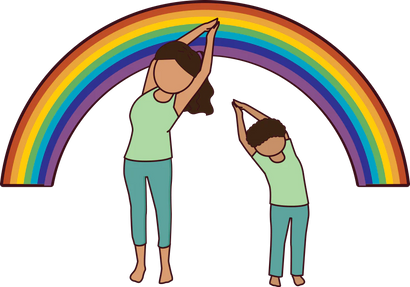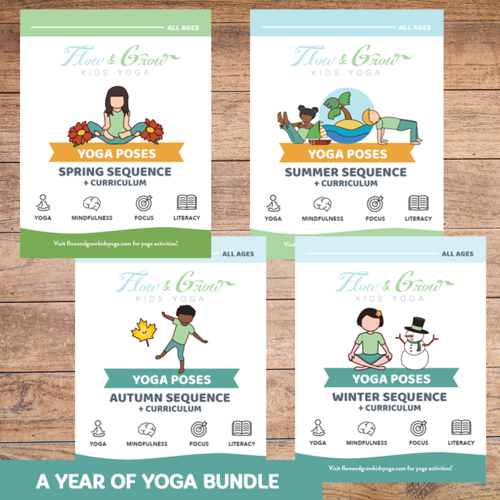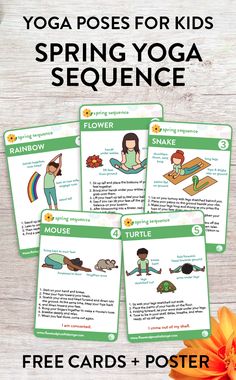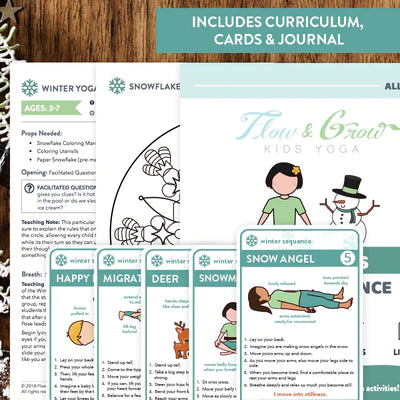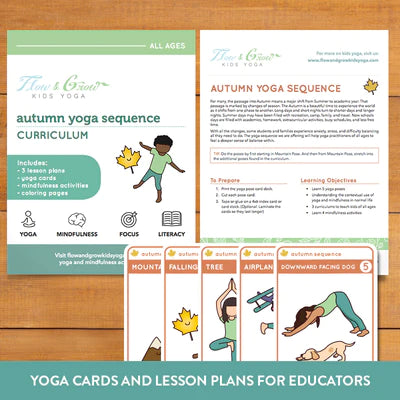Your Cart is Empty
22% off Automatically at checkout when you spend $5 of more!
22% off Automatically at checkout when you spend $5 of more!
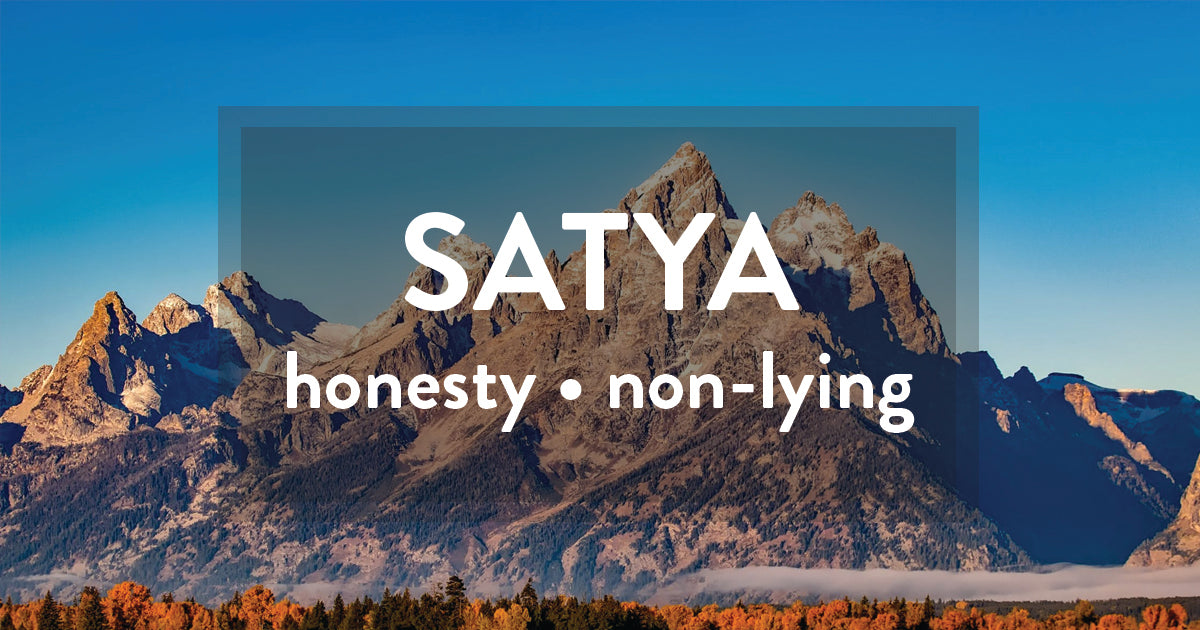
Teaching Satya to Children: Honesty and Non-lying
by Kane SEO February 07, 2019 3 min read
In yoga, there is a set of ethical principles or guidelines called the Yamas and Niyamas. Yamas are things not to do, or restraints, while the niyamas are things to do, or observances Together, they provide ways in which we can build a better relationship with ourselves and world around us too.
Let’s take a look at the second yama, Satya.
Satya simply means do not lie. We teach our young ones to tell the truth and not to lie. It’s also important to teach children that lying can hurt other people and can also hurt yourself. By age 7, we see that children understand accountability for lying. They can tell the difference between a story, truth or lie. Still, sometimes it can be hard for kids–especially if they do not want to tell the truth out of fear of getting in trouble and/or hurting others’ feelings.
That’s where ahmisa can help.
Ahmisa, the first yama, means kindness and non-harming. Think about a time where you wanted to be honest to someone but it would hurt them. Referring back to ahmisa, ask yourself:
-
Is it true?
-
Is being non-harmful more important than being truthful?
-
Is it necessary to say?
By thinking to yourself “if I say this, is it kind and non-harming?”, we can make a conscious decision on what and how to communicate it.
We can teach satya to children.
By having an open discussion about how to communicate truth in a deliberate and gentle way, children can learn about satya. Try asking children questions like:
-
What would you do if your friend asked for your opinion about something they like that you don’t like? Is it okay to lie in this case?
-
What would you do if your friend asked for your opinion about their new dress which you think is ugly? What do you tell them?
-
When you are in a disagreement with someone, how can you honestly express yourself without hurting the other person?
In a larger class or group setting, try our honesty activity below, which can be found in our lesson unit, Yamas and Niyamas for kids ages 7-11.
Be Honest with Ourselves
-
Start by breaking up children into pairs.
-
Have students sit back-to-back in easy pose (criss cross applesauce) and adjust themselves to sit firmly on the ground and lengthen their spine. They can both support each other while being supported. Make sure neither person feels they are being pushed or pulled. They can rest their hands in a comfortable position.
-
Counting to 4, children will take a deep breath in, then hold the breath in for two (2) counts, and slowly let out their breath for another count of four (4).
-
Repeat deep breathes at least three (3) times.
-
Prompt the students to notice how their breath feels with the support of their partner.
-
Once done with the breathing exercise, have them turn around and face each other. Ask the children to think of something that they are proud of about themselves; this could be a personality trait, an accomplishment, an activity/hobby they like doing, etc. It’s important that each child have a turn to talk and to listen.
-
Follow-up by asking children to think of something that they would like to work on, encouraging them to be honest with themselves about their strengths and weaknesses. Give them a few minutes to think of their responses. Then, suggest that the children share their ideas with their partner and brainstorm possible ways that they might work on their weaknesses.
What are some other ways we can teach honesty to children?
For more information on how we can bring honesty and truthfulness to a child’s life, join us for a free webinar on Thursday, February 14th, 2019 at 4:00 PM EST.
Together, we’ll learn how to facilitate conversations as they relate to the second of the Yamas: Truthfulness in the context of a child’s life.
Leave a comment
Comments will be approved before showing up.
Also in Kids Yoga Blog
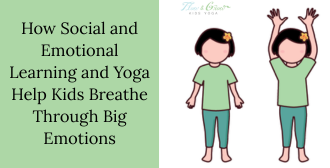
How Social and Emotional Learning and Yoga Help Kids Breathe Through Big Emotions
by Kane SEO April 21, 2025 4 min read
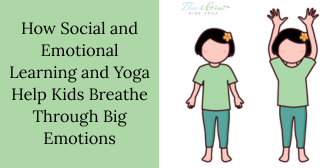
How Social and Emotional Learning and Yoga Help Kids Breathe Through Big Emotions
by Kane SEO April 14, 2025 4 min read
In classrooms and communities around the world, educators and parents alike are placing a growing emphasis onsocial and emotional learning. And for good reason: helping children understand, manage, and express their emotions in healthy ways is just as critical as teaching them to read or do math.

Power of Yoga for Kids: How It Helps Them Grow, Focus, and Thrive
by Kane SEO March 25, 2025 5 min read
In today’s fast-paced world, children are often exposed to stressors from a young age, whether it’s academic pressure, social challenges, or the overwhelming influence of digital devices. This can impact their physical, mental, and emotional well-being.
Ultimate Kids Year of Yoga Bundle
bundlespricey-contentdigital-resourcesearly-childhood-yoga-mindfulnesselementary-yoga-mindfulnesskids-yoga-resourcesmiddle-high-school-yoga-mindfulnessseasonal-yogayoga-cards
Ultimate Kids Year of Yoga Bundle
5 reviews
5.0 / 5.0
(5) 5 total reviews
$45.00
Ultimate Kids Year of Yoga Bundle
5 reviews
5.0 / 5.0
(5) 5 total reviews
$45.00
Kid’s Sun Salutation Yoga Cards
digital-resourcesearly-childhood-yoga-mindfulnesselementary-yoga-mindfulnesskids-yoga-resourcesliteracyunder-15yoga-cards
Kid’s Sun Salutation Yoga Cards
3 reviews
4.33 / 5.0
(3) 3 total reviews
$10.00
Kid’s Sun Salutation Yoga Cards
3 reviews
4.33 / 5.0
(3) 3 total reviews
$10.00
Yamas and Niyamas: Successful Relationships with Self & Others (tweens and teens)
pricey-contentdigital-resourceskids-yoga-resourceslesson-plansmiddle-high-school-yoga-mindfulnessmindfulness
Yamas and Niyamas: Successful Relationships with Self & Others (tweens and teens)
2 reviews
5.0 / 5.0
(2) 2 total reviews
$49.00$55.00
Yamas and Niyamas: Successful Relationships with Self & Others (tweens and teens)
2 reviews
5.0 / 5.0
(2) 2 total reviews
$49.00$55.00
